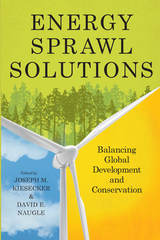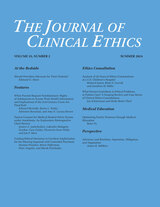
In Energy Sprawl Solutions, scientists Joseph M. Kiesecker and David Naugle provide a roadmap for preserving biodiversity despite the threats of energy sprawl. Their strategy—development by design—brings together companies, communities, and governments to craft blueprints for sustainable land development. This commonsense approach identifies and preemptively sets aside land where biodiversity can thrive while consolidating development in areas with lower biodiversity value. This approach makes sense for energy industries and governments, which can confidently build sustainability into their energy futures.
This contributed volume brings together experts in diverse fields such as biodiversity conservation, ecology, ecosystem services, wildlife, fisheries, planning, energy, economics, and finance. Early chapters set the context for global patterns of biodiversity risk from energy extraction and the challenges of achieving a green future while maintaining energy security. Middle chapters are devoted to case studies from countries around the world, each describing a different energy sector and the collaborative process involved in planning complex energy projects in a way that maximizes biodiversity protection. Detailed maps and charts help orient readers to countries and energy sectors, providing proof for what is possible.
With biodiversity declining rapidly because of an energy-hungry world, this book provides a needed guide for elected officials, industry representatives, NGOs and community groups who have a stake in sustainable energy-development planning.

With marine ecosystems endangered by a warming climate and exploding human population growth, a critical transformation is taking place in the way the world's ocean resources are managed. Marine Ecosystem-Based Management presents a state-of-the-art synopsis of the conservation approaches that are currently being translated from theory to action on a global scale. With contributions from an international team of experts, this volume synthesizes the scientific literature of holistic practices in ecosystem-based management (EBM), focusing on protecting the marine ecologies that humans and countless other organisms vitally depend upon.
Human uses of ocean ecosystems have usually been divided into separate sectors--fisheries, transportation, tourism, and recreation, for example--and ecosystem boundaries defined as much by politics as geography. This approach is giving way to a broader strategy based on integrated management of human activities in scientifically identified regions of the marine environment. Spanning a range of issues from the tropics to the poles, the authors present analyses of open ocean systems and high-impact regions such as coastlines, coral reefs, and estuaries. Methods of modeling and evaluating marine EBM are explored, as well as the role of governmental and other regulatory frameworks in ocean management and the lessons to be learned from past ecological interventions.
It is now widely recognized that any viable strategy for sustaining the world's oceans must reflect the relationships among all ecosystem components, human and nonhuman species included. Marine Ecosystem-Based Management is an in-depth report of new advances in the rapidly evolving discipline of coupled Human-Ecological Systems.
READERS
Browse our collection.
PUBLISHERS
See BiblioVault's publisher services.
STUDENT SERVICES
Files for college accessibility offices.
UChicago Accessibility Resources
home | accessibility | search | about | contact us
BiblioVault ® 2001 - 2024
The University of Chicago Press









